This article provides a comprehensive guide to locating qualified lawyers for various legal cases in Anaheim, California, covering practical tips and expert insights for effective attorney selection.
Understanding Personal Injury Cases
Personal injury cases arise when an individual suffers harm due to another’s negligence or wrongful actions. To find the best personal injury lawyer in Anaheim, start by seeking referrals from trusted sources. Additionally, utilize online platforms such as Avvo or FindLaw, which provide ratings and reviews of attorneys. Look for lawyers with a strong track record in personal injury cases, and ensure they offer a free consultation to discuss your case without financial commitment.
Medical Malpractice: Finding the Right Lawyer
Medical malpractice cases require attorneys who specialize in healthcare law. When searching for a lawyer in this field, check their credentials, focusing on those with experience in medical negligence claims. Websites like Super Lawyers can help you identify top-rated malpractice attorneys. Always ask about their success rate and whether they have handled cases similar to yours.
Breach of Contract: Legal Representation Essentials
Breach of contract cases can lead to significant financial repercussions. To find a qualified attorney, look for those who specialize in contract law and have a proven history of handling similar disputes. Online legal directories can provide insights into their past cases and client reviews. Consider scheduling interviews to discuss their approach and strategies for your specific situation.
Property Disputes: Selecting the Best Legal Counsel
Property disputes often involve complex legal issues related to real estate law. When seeking representation, prioritize attorneys who have extensive experience in property law and a solid understanding of local regulations. Networking within real estate groups or forums can also lead to referrals for skilled attorneys in Anaheim.
Landlord-Tenant Disputes: Navigating Legal Challenges
Landlord-tenant disputes can be contentious and require legal expertise to navigate. Look for attorneys who specialize in landlord-tenant law and have knowledge of tenant rights and landlord responsibilities. Organizations like the Nolo website provide resources and attorney listings that can assist in your search.
Defamation Cases: Securing Legal Expertise
Defamation cases involve intricate issues surrounding free speech and reputation. To find a qualified lawyer, focus on those who have experience in libel and slander cases. Check their credentials and past case outcomes to ensure they are well-versed in this area of law. Many attorneys offer initial consultations, allowing you to gauge their approach before making a commitment.
Employment Disputes: Finding the Right Attorney
Employment disputes can arise from wrongful termination or discrimination. When searching for an attorney, look for those who specialize in employment law and have a strong understanding of labor rights. Resources like the Equal Employment Opportunity Commission (EEOC) can provide guidance on your rights and help identify experienced attorneys.
Product Liability: Legal Guidance for Consumers
Product liability cases hold manufacturers accountable for defective products. Seek attorneys with expertise in product liability law and a history of successful claims. Online reviews and testimonials can provide insights into their effectiveness, while legal directories can help narrow down your options.
Wrongful Death: Seeking Justice
Wrongful death claims are emotionally charged and legally complex. When searching for representation, prioritize attorneys who demonstrate compassion and have substantial experience in wrongful death cases. Look for those who have successfully navigated similar cases and can provide references from previous clients.
Class Action Lawsuits: Understanding Your Rights
Class action lawsuits allow groups to sue for collective damages. To find an attorney specializing in class actions, research firms that have a strong reputation in this area. Websites like ClassAction.org can offer valuable information on ongoing cases and experienced attorneys.
Assault and Battery: Legal Representation Options
Assault and battery cases require a strong legal strategy. Seek attorneys who are experienced in both criminal defense and personal injury related to these offenses. Look for those with a proven track record in similar cases, and consider their approach to client representation during initial consultations.
Cybercrime: Finding Specialized Legal Help
Cybercrime cases are increasingly prevalent in our digital world. When looking for legal representation, focus on attorneys who specialize in cyber law. Ensure they have experience in navigating the complexities of digital offenses and are up-to-date with current laws and regulations.
Divorce and Family Law: Choosing the Right Lawyer
Family law cases, including divorce and custody disputes, require sensitive handling. When selecting an attorney, prioritize those who specialize in family law and understand the emotional aspects involved. Look for professionals who offer mediation services, as this can often lead to more amicable resolutions.

Understanding Personal Injury Cases
Personal injury cases are a significant area of law, focusing on claims for damages resulting from negligence or wrongdoing. These cases can arise from various situations, including car accidents, slips and falls, and medical malpractice. Understanding the intricacies of personal injury law is crucial for anyone seeking compensation for injuries sustained due to someone else’s actions. This section provides insights on how to find attorneys who specialize in personal injury law, ensuring you receive the best representation possible.
When searching for a personal injury attorney, it is essential to consider several factors to ensure you choose a qualified professional. Here are some practical tips to guide your selection process:
- Research Local Attorneys: Start by researching personal injury attorneys in your area. Look for those with a strong reputation and extensive experience in handling similar cases. Websites like Avvo and FindLaw can provide valuable information about local lawyers, including client reviews and ratings.
- Check Credentials: Verify the attorney’s credentials, including their education, bar admission, and any special certifications in personal injury law. Memberships in professional organizations, such as the American Association for Justice, can also indicate a commitment to the field.
- Experience Matters: Look for attorneys who have a proven track record in personal injury cases. Ask about their past settlements and verdicts, as well as their experience with cases similar to yours.
- Consultation: Schedule consultations with potential attorneys. Many personal injury lawyers offer free initial consultations. Use this opportunity to ask questions about their approach, fees, and how they plan to handle your case.
- Fee Structure: Understand the attorney’s fee structure. Most personal injury lawyers work on a contingency fee basis, meaning they only get paid if you win your case. Be sure to clarify the percentage they will take and any additional costs you may incur.
- Communication: Effective communication is vital in any attorney-client relationship. Choose a lawyer who is responsive, takes the time to explain legal concepts, and makes you feel comfortable discussing your case.
- Red Flags: Be wary of attorneys who promise guaranteed outcomes or pressure you into signing contracts quickly. A reputable lawyer will provide honest assessments and allow you to make informed decisions.
In major metropolitan areas like New York City, Los Angeles, and Chicago, the competition among personal injury attorneys can be intense. Therefore, leveraging online resources, local bar associations, and personal recommendations can be particularly beneficial. Networking with friends or family who have previously engaged with personal injury lawyers can also lead you to trusted professionals.
Ultimately, finding the right personal injury attorney involves thorough research and careful consideration. By following these guidelines, you can ensure that you are well-represented and increase your chances of receiving the compensation you deserve for your injuries.
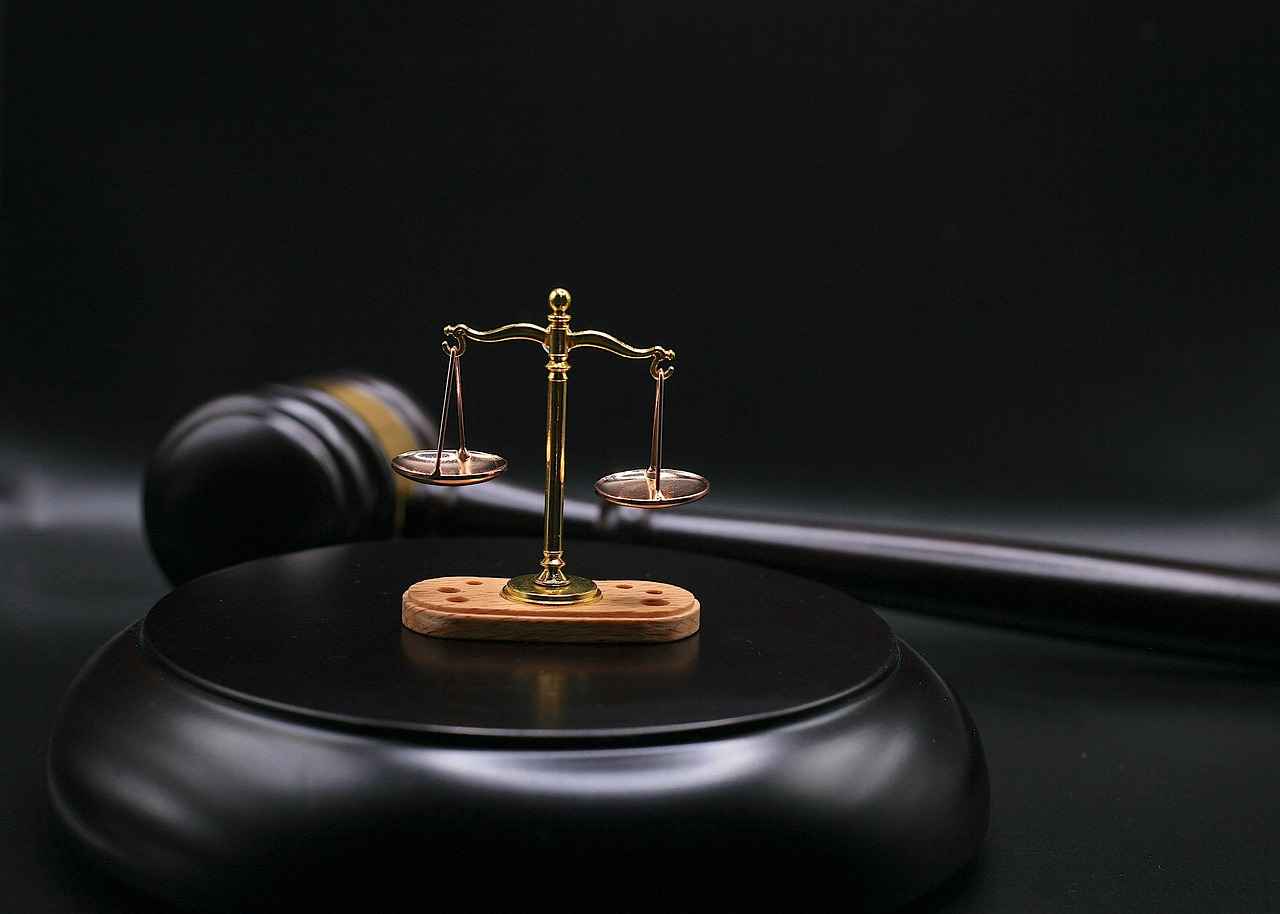
Medical Malpractice: Finding the Right Lawyer
Medical malpractice cases are among the most complex and sensitive legal issues in the United States. They arise when a healthcare provider fails to meet the accepted standard of care, resulting in harm to a patient. Identifying the right attorney to handle such cases is crucial, as it requires specialized knowledge of healthcare law and the intricacies of medical practices. This section provides guidance on how to find qualified lawyers who can effectively navigate the challenges associated with medical negligence claims.
When searching for a lawyer specializing in medical malpractice, consider the following steps:
- Research Their Experience: Look for attorneys who have a proven track record in handling medical malpractice cases. Ideally, they should have experience both in the courtroom and in negotiating settlements. Check their case history to see how many similar cases they have successfully resolved.
- Verify Credentials: Ensure that the attorney is licensed to practice law in your state and is in good standing with the state bar association. Additionally, consider whether they have any specialized certifications in medical malpractice or related fields.
- Seek Recommendations: Ask for referrals from friends, family, or healthcare professionals. Personal recommendations can provide valuable insights into an attorney’s capabilities and reputation.
- Consult Online Reviews: Websites like Avvo, Martindale-Hubbell, and Google Reviews can help you gauge the experiences of past clients. Look for attorneys with high ratings and positive reviews specifically related to medical malpractice.
During your initial consultation, which many attorneys offer for free, ask pertinent questions to assess their expertise:
- What is your experience with medical malpractice cases? Inquire about the number of cases they have handled and their outcomes.
- What is your approach to handling my case? Understanding their strategy will give you an idea of how they plan to advocate for your interests.
- Do you work with medical experts? A competent medical malpractice attorney should collaborate with healthcare professionals to build a strong case.
Additionally, be wary of red flags that may indicate a less-than-reputable attorney:
- Pressure Tactics: Be cautious of any attorney who rushes you into making decisions or signing contracts without giving you time to think.
- High Upfront Fees: While some attorneys work on a contingency basis, those demanding high initial fees may not have your best interests at heart.
- Lack of Communication: An attorney who is difficult to reach or unresponsive to your inquiries may not prioritize your case.
In conclusion, finding the right lawyer for a medical malpractice case involves thorough research and careful consideration. By focusing on experience, credentials, and client feedback, you can identify an attorney who is well-equipped to advocate for your rights and navigate the complexities of your claim. Remember, the right legal representation can make a significant difference in the outcome of your case.

Breach of Contract: Legal Representation Essentials
Breach of contract cases are among the most common legal disputes that arise in both personal and business contexts. When one party fails to fulfill their obligations as outlined in a contract, it can lead to significant financial implications for the other party. This section focuses on how to find attorneys who specialize in contract law, ensuring they possess the necessary skills to navigate the complexities of legal agreements and disputes.
When searching for a qualified attorney in breach of contract cases, it is essential to consider several factors:
- Experience: Look for attorneys who have a proven track record in handling breach of contract cases. An experienced lawyer will understand the nuances of contract law and will be better equipped to advocate for your interests.
- Specialization: Ensure the attorney specializes in contract law. This specialization indicates that they are familiar with the specific legal principles and precedents that govern contract disputes.
- Reputation: Research the attorney’s reputation through online reviews, ratings on legal platforms, and testimonials from past clients. A strong reputation is often a good indicator of an attorney’s reliability and effectiveness.
- Communication: Effective communication is crucial in legal matters. Choose an attorney who is responsive, listens to your concerns, and explains complex legal concepts in a way you can understand.
- Fees: Discuss the attorney’s fee structure upfront. Some may charge hourly rates, while others may work on a contingency basis. Understanding the costs involved will help you avoid unexpected expenses.
In major metropolitan areas like New York City, Los Angeles, and Chicago, there are numerous resources available to help you find the right attorney:
- Legal Directories: Websites like Avvo and FindLaw allow you to search for attorneys by practice area and location, providing ratings and reviews from previous clients.
- Bar Associations: Local or state bar associations often have referral services that can connect you with qualified attorneys in your area. They may also provide resources for checking an attorney’s credentials.
- Networking: Personal referrals from friends, family, or business associates can be invaluable. If someone you trust has had a positive experience with a contract attorney, consider reaching out to them for a recommendation.
While searching for an attorney, be aware of potential red flags that may indicate a less-than-reputable lawyer:
- High Pressure Tactics: If an attorney pressures you to sign a contract or make quick decisions, this is a warning sign. A trustworthy attorney will provide you with the time and information needed to make informed choices.
- Lack of Transparency: Be cautious of attorneys who are vague about their fees, experience, or the process involved in your case. Transparency is key to a good attorney-client relationship.
- Negative Reviews: While one negative review may not be a dealbreaker, a pattern of negative feedback should raise concerns about the attorney’s professionalism and effectiveness.
In summary, finding the right attorney for breach of contract cases involves thorough research and careful consideration of various factors. Prioritize experience, specialization, and reputation while utilizing available resources to ensure you select a qualified legal representative. By following these guidelines, you can protect your interests and navigate the complexities of contract disputes with confidence.

Property Disputes: Selecting the Best Legal Counsel
Property disputes can arise from various situations, including boundary disagreements, landlord-tenant conflicts, and issues involving property ownership. Navigating these disputes often requires a nuanced understanding of real estate law, making it essential to find a lawyer with the right expertise. This section offers practical guidance on how to select a legal representative skilled in property law to effectively advocate for your interests.
When searching for a property lawyer, consider the following steps:
- Research Local Attorneys: Start by searching for attorneys who specialize in property disputes in your area. Websites like Avvo and FindLaw can provide valuable insights into local legal professionals, including their specialties and client reviews.
- Check Credentials: Look for lawyers who have specific credentials in real estate law. Membership in organizations such as the American Bar Association or local bar associations can indicate a commitment to their field.
- Experience Matters: Choose an attorney with substantial experience in handling property disputes. Inquire about their track record in similar cases and their familiarity with local laws and regulations.
- Initial Consultation: Schedule an initial consultation to discuss your case. This meeting is an opportunity to assess the lawyer’s communication style, approach, and understanding of your situation. Pay attention to how they listen and respond to your concerns.
- Evaluate Fees: Understand the attorney’s fee structure before making a decision. Some lawyers charge hourly rates, while others may work on a contingency basis. Ensure you are comfortable with the financial arrangements and ask about any additional costs that may arise.
- Client Testimonials: Look for reviews and testimonials from previous clients. Positive feedback can provide insight into the lawyer’s effectiveness and client relations.
- Trust Your Instincts: Finally, trust your instincts when selecting a lawyer. You should feel confident in their ability to represent your interests and navigate the complexities of your case.
In major metropolitan areas like New York City and Los Angeles, the competition among attorneys can be fierce. Utilize online legal directories and local bar associations to find qualified property lawyers. Networking with friends or colleagues who have had similar experiences can also lead to valuable recommendations.
In summary, finding the right legal counsel for property disputes requires careful consideration and research. By following these steps and seeking attorneys with the right expertise, you can ensure that your interests are effectively represented in any property-related legal matter.

Landlord-Tenant Disputes: Navigating Legal Challenges
Landlord-tenant disputes are often contentious and can arise from various issues, including unpaid rent, property damage, eviction processes, or disagreements over lease terms. Understanding your rights and responsibilities as either a landlord or a tenant is crucial in resolving these conflicts amicably. This section will guide you on how to find qualified attorneys experienced in landlord-tenant law, ensuring that your rights are protected and responsibilities are met.
When searching for a lawyer, consider the following steps:
- Research Local Law Firms: Start by looking for law firms in your area that specialize in landlord-tenant disputes. Websites like Avvo or FindLaw can provide listings of attorneys along with client reviews.
- Check Qualifications: Ensure that the attorney you consider has experience specifically in landlord-tenant law. Look for credentials such as membership in the American Bar Association or local bar associations, as these can indicate a commitment to the field.
- Ask for Referrals: Personal recommendations can be invaluable. Ask friends, family, or real estate professionals if they know any reputable attorneys who specialize in landlord-tenant issues.
- Schedule Consultations: Many attorneys offer free initial consultations. Use this opportunity to discuss your case and gauge their expertise and approach. Prepare a list of questions to ask, including their experience with similar cases and their success rate.
- Evaluate Communication: A good attorney should be able to communicate clearly and effectively. Pay attention to how well they listen to your concerns and explain legal concepts.
In addition to these steps, it is essential to be aware of red flags when selecting an attorney:
- Lack of Transparency: If an attorney is unwilling to provide clear information about their fees or the legal process, consider this a warning sign.
- Negative Reviews: While one or two negative reviews may be inconsequential, a pattern of complaints about an attorney’s professionalism or results should raise concerns.
- Pressure Tactics: Be cautious of attorneys who pressure you into making quick decisions or taking on unnecessary legal actions.
Understanding Tenant Rights and Landlord Responsibilities
Both tenants and landlords have specific rights and responsibilities under the law. Familiarizing yourself with these can help mitigate disputes:
- Tenant Rights: Tenants have the right to a habitable living space, privacy, and protection against unlawful eviction. They should also be aware of their rights regarding security deposits and lease agreements.
- Landlord Responsibilities: Landlords are responsible for maintaining the property, ensuring it meets health and safety standards, and providing necessary repairs in a timely manner.
In cases where disputes escalate, having a knowledgeable attorney can make all the difference. They can help negotiate settlements, represent you in court, and ensure that your rights are upheld throughout the process. Whether you are a tenant facing eviction or a landlord dealing with a non-paying tenant, seeking legal counsel is a wise step toward resolving your issues effectively.

Defamation Cases: Securing Legal Expertise
Defamation cases are increasingly prevalent in today’s society, where the rapid dissemination of information through social media and other platforms can lead to significant harm to an individual’s reputation. These cases typically involve two main forms: libel, which refers to written defamation, and slander, which pertains to spoken defamation. Understanding the complexities of these cases is crucial for anyone who believes their reputation has been unjustly tarnished.
When seeking legal representation for a defamation case, it is essential to find a qualified attorney with specific experience in this area of law. Here are some practical steps to identify the right legal expert:
- Research Specialization: Look for attorneys who specialize in defamation law. They should have a proven track record in handling libel and slander cases. Websites like Avvo and FindLaw can provide insights into lawyers’ specializations and client reviews.
- Check Credentials: Verify the lawyer’s educational background, bar association memberships, and any certifications in media or defamation law. Membership in organizations such as the Defamation Lawyers Association can be a positive indicator of expertise.
- Assess Experience: Look for attorneys with substantial experience in defamation cases. An attorney who has successfully handled similar cases in your jurisdiction will be more familiar with local laws and precedents that could affect your case.
- Consult Initial Meetings: Schedule consultations with multiple attorneys. During these meetings, evaluate their understanding of your situation, their proposed strategies, and their communication style. This is also an opportunity to gauge their passion for protecting your rights.
- Review Client Testimonials: Reading testimonials from previous clients can provide insight into the attorney’s effectiveness and how they handle cases. Look for comments regarding their communication skills, professionalism, and success rates.
- Evaluate Fees and Costs: Discuss the attorney’s fee structure upfront. Many defamation lawyers work on a contingency fee basis, which means they only get paid if you win your case. Ensure you understand all potential costs involved.
It is also important to be aware of red flags when selecting a lawyer:
- Lack of Experience: Be cautious of attorneys who do not have a clear track record in defamation cases or who are reluctant to provide references.
- Pressure Tactics: Avoid lawyers who pressure you into making quick decisions or signing contracts without fully understanding the terms.
- Poor Communication: If an attorney is difficult to reach or unresponsive during initial consultations, it may indicate future challenges in communication.
In summary, securing legal expertise in defamation cases requires thorough research and careful consideration. By following the outlined steps and being vigilant about potential red flags, individuals can find a qualified attorney who will effectively advocate for their rights and help restore their reputation. Remember, the right legal representation can make a significant difference in the outcome of your case.
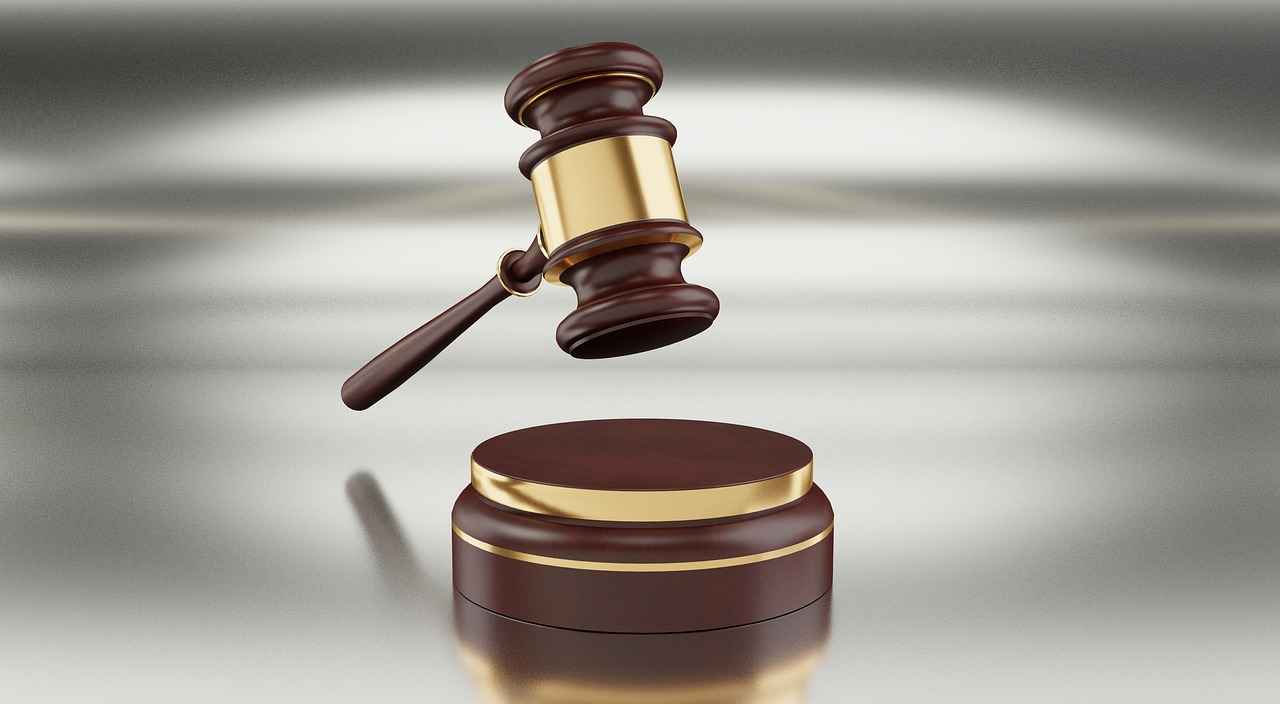
Employment Disputes: Finding the Right Attorney
Employment disputes can arise from various issues, including wrongful termination, discrimination, and harassment. Identifying the right attorney to handle these sensitive matters is crucial for protecting your rights and securing a favorable outcome. Here’s how to navigate the process of finding a qualified employment law attorney.
- Understand the Types of Employment Disputes: Before seeking legal representation, it’s essential to understand the nature of your dispute. Common issues include wrongful termination, wage disputes, workplace harassment, and discrimination based on race, gender, age, or disability. Each of these issues may require different legal expertise.
- Look for Specialized Experience: When searching for an attorney, prioritize those who specialize in employment law. Check their background for cases similar to yours. An attorney with a strong track record in handling employment disputes will be more adept at navigating the complexities of labor laws.
- Check Credentials and Reviews: Research potential attorneys by reviewing their credentials, such as their education, bar admissions, and any professional memberships. Websites like Avvo or Martindale-Hubbell provide ratings and reviews from former clients, which can give you insights into their reputation and effectiveness.
- Consultation is Key: Many attorneys offer free initial consultations. Use this opportunity to gauge their understanding of your case and their communication style. Prepare questions about their experience, fees, and approach to handling your specific issue.
- Evaluate Communication Skills: The attorney-client relationship is built on effective communication. Ensure that the attorney listens to your concerns and explains legal concepts in a way that you understand. A good attorney should be approachable and responsive to your inquiries.
- Understand Fee Structures: Employment law attorneys may charge on a contingency basis, hourly rate, or flat fee. Make sure to discuss and understand the fee structure during your consultation. This transparency will help you avoid unexpected costs later on.
- Assess Their Negotiation Skills: Many employment disputes are settled out of court. Therefore, it’s important to choose an attorney who is not only skilled in litigation but also has strong negotiation skills. Ask about their experience in negotiating settlements and their success rate.
- Consider Location and Accessibility: Finding an attorney in your local area can be beneficial, as they will be familiar with local laws and regulations. Make sure their office is accessible and that you feel comfortable visiting them for discussions.
By taking the time to research and evaluate potential attorneys, you can find a qualified professional who understands the nuances of employment law and is committed to advocating for your rights. Remember, the right attorney can make a significant difference in the outcome of your case.

Product Liability: Legal Guidance for Consumers
In today’s consumer-driven society, the safety and reliability of products are paramount. When a product fails to meet safety standards, resulting in injury or damage, product liability law comes into play. This area of law holds manufacturers, distributors, and retailers accountable for defective products. Understanding how to navigate product liability cases is essential for consumers seeking justice.
The first step in pursuing a product liability claim is to find an attorney with specific expertise in this field. Here are some practical tips for locating qualified legal representation:
- Research Local Attorneys: Start your search by looking for attorneys who specialize in product liability cases in your area. Websites like Avvo and FindLaw can be invaluable resources for finding local lawyers with the right expertise.
- Check Credentials and Experience: Look for attorneys with a proven track record in handling product liability cases. This includes experience with similar cases, relevant certifications, and a strong understanding of consumer protection laws.
- Read Reviews and Testimonials: Online reviews can provide insight into an attorney’s reputation. Look for feedback from previous clients regarding their experiences and the outcomes of their cases.
- Consult Professional Associations: Organizations such as the American Association for Justice and state bar associations often have directories or referral services that can connect you with qualified attorneys.
- Initial Consultations: Many attorneys offer free consultations. Use this opportunity to discuss your case and evaluate the attorney’s approach and understanding of product liability law.
When meeting with potential attorneys, consider asking the following questions:
- What is your experience with product liability cases?
- Can you provide examples of successful outcomes in similar cases?
- How do you handle fees and costs associated with the case?
- What is your approach to communication and updates throughout the process?
Be wary of red flags when selecting an attorney. Avoid those who promise guaranteed outcomes, as no attorney can predict the results of a case with certainty. Additionally, be cautious of attorneys who lack transparency about their fees or who pressure you into signing agreements without giving you adequate time to review them.
In conclusion, navigating the complexities of product liability cases requires a knowledgeable attorney who can advocate for your rights. By thoroughly researching and vetting potential lawyers, you can ensure that your case is handled with the care and expertise it deserves. Remember, finding the right legal representation is a crucial step in achieving a favorable resolution to your product liability claim.
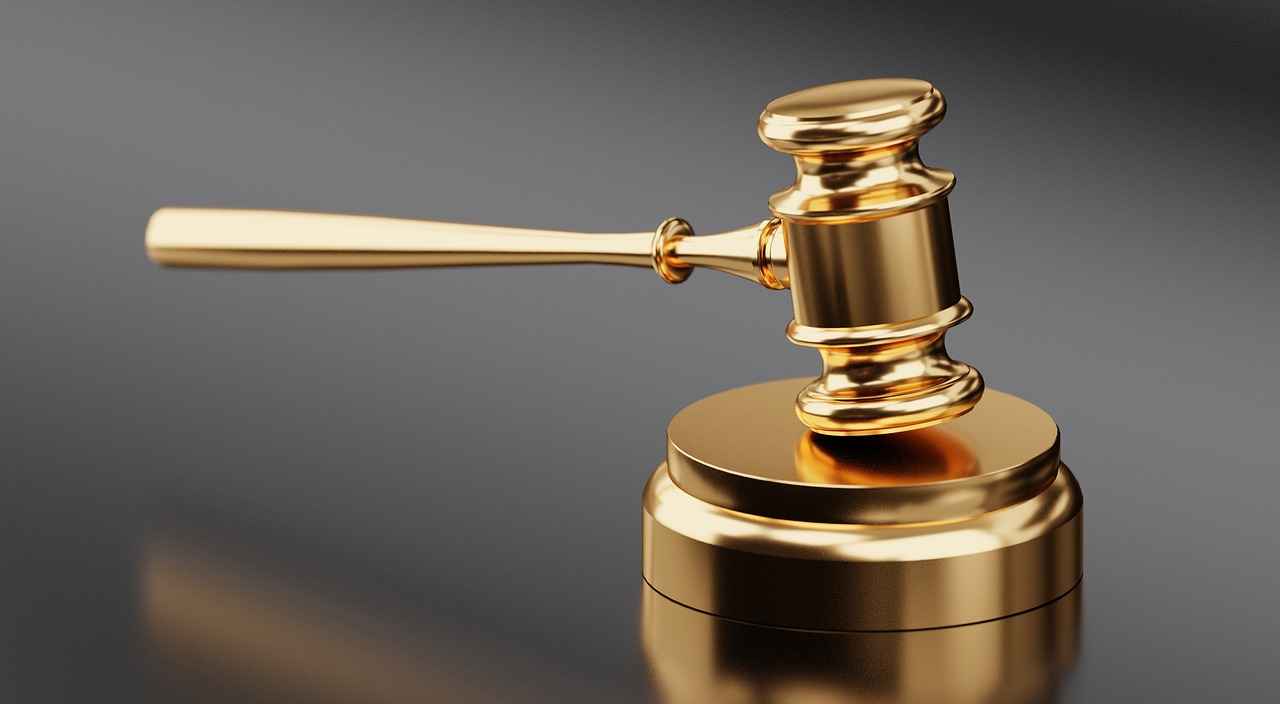
Wrongful Death: Seeking Justice
Wrongful death claims are among the most heart-wrenching legal cases, often arising from tragic circumstances where negligence or intentional harm leads to the untimely death of an individual. These cases not only involve complex legal principles but are also steeped in profound emotional distress for the families left behind. When navigating this difficult terrain, it is crucial to find a legal representative who is not only knowledgeable but also compassionate and understanding of the sensitive nature of these claims.
To begin your search for the right attorney, consider the following steps:
- Research Specialization: Look for attorneys who specialize in wrongful death law. Many personal injury lawyers may dabble in various areas, but finding someone with a proven track record in wrongful death cases can significantly impact the outcome of your claim.
- Check Credentials: Verify the attorney’s credentials, including their education, bar association membership, and any relevant certifications. Membership in professional organizations, such as the American Association for Justice, can indicate a commitment to staying updated on legal standards and practices.
- Read Reviews: Online reviews and testimonials can provide insight into an attorney’s reputation. Websites like Avvo or Martindale-Hubbell offer ratings and reviews from previous clients, which can help you gauge the attorney’s effectiveness and client satisfaction.
- Schedule Consultations: Many attorneys offer free initial consultations. Use this opportunity to discuss your case and assess how comfortable you feel with the attorney. Pay attention to their communication style and whether they show empathy towards your situation.
- Ask About Experience: Inquire about the attorney’s experience with wrongful death cases specifically. Ask about their success rate, the types of cases they have handled, and their approach to litigation. This will help you understand their capability to handle your case effectively.
- Evaluate Communication: Effective communication is key in any attorney-client relationship. Ensure that the lawyer is willing to keep you informed about your case’s progress and is available to answer your questions promptly.
- Discuss Fees: Understanding the attorney’s fee structure is essential. Many wrongful death attorneys work on a contingency fee basis, meaning they only get paid if you win your case. Ensure that you are clear about any potential costs and how they will be handled.
In addition to these steps, consider seeking referrals from friends, family, or support groups who may have gone through similar experiences. Personal recommendations can lead you to attorneys who have demonstrated compassion and skill in handling wrongful death claims.
Finally, be mindful of red flags when selecting an attorney. Avoid those who make unrealistic promises about the outcome of your case or those who seem more focused on their fees than your needs. Trust your instincts—if something feels off during your interactions, it may be worth exploring other options.
By following these guidelines, you can find a compassionate and experienced attorney to represent your interests in wrongful death claims, ensuring that you have the support you need during this challenging time.
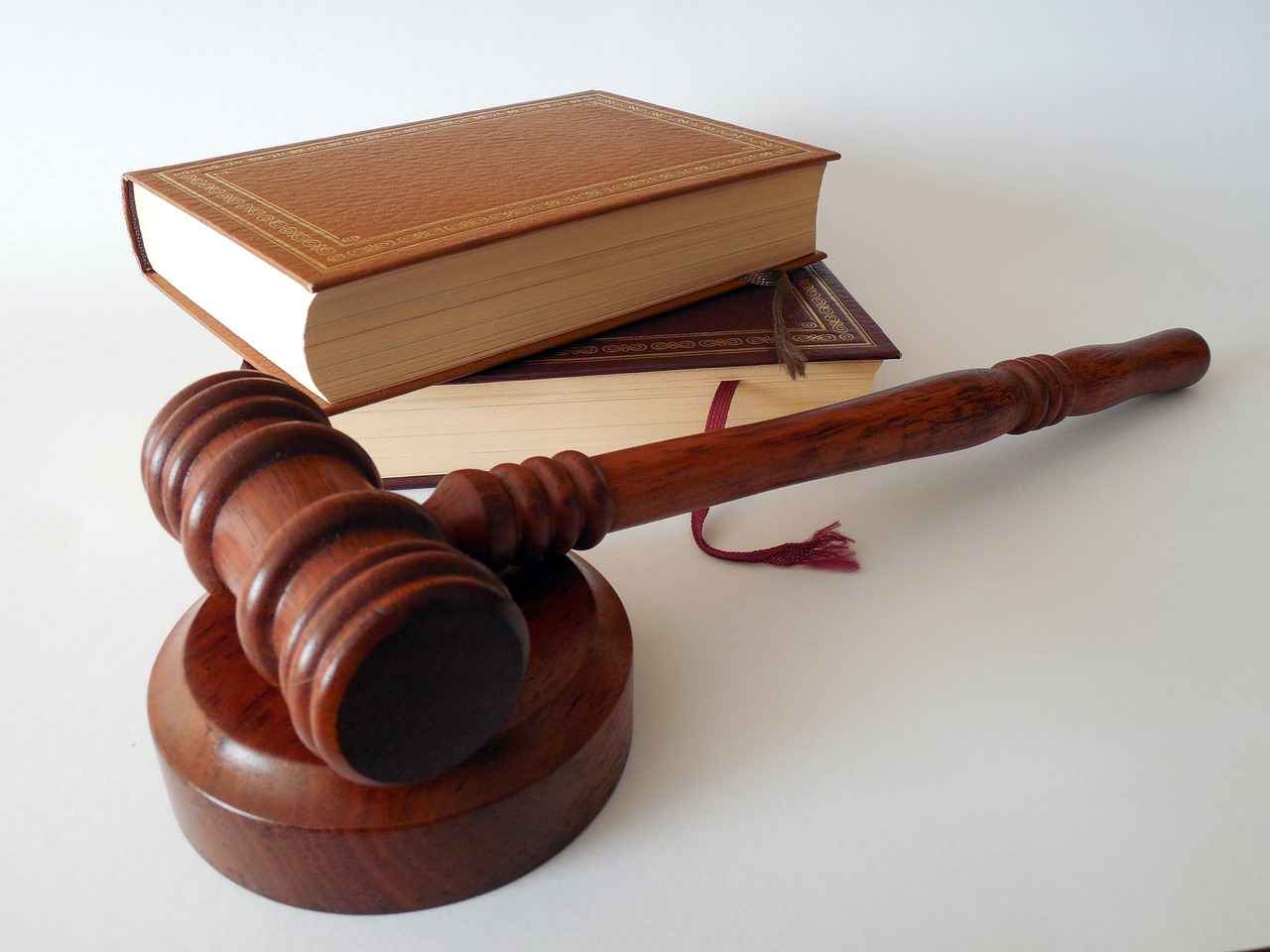
Class Action Lawsuits: Understanding Your Rights
Class action lawsuits play a crucial role in the American legal system, allowing groups of individuals with similar grievances to come together to seek justice against larger entities, such as corporations or government bodies. This section will guide you through the process of finding qualified attorneys who specialize in class action lawsuits, ensuring that you and your fellow plaintiffs are represented effectively in these larger legal battles.
When considering a class action lawsuit, it’s essential to understand that these cases often involve complex legal issues and require attorneys with specialized knowledge and experience. Here are some practical steps to help you find the right legal representation:
- Research Specialized Attorneys: Start by looking for law firms that specifically advertise their expertise in class action lawsuits. These firms typically highlight their experience with similar cases and the outcomes they have achieved.
- Check Credentials: Verify the attorney’s credentials, including their education, years of experience, and any special certifications related to class action law. Membership in professional organizations, such as the American Association for Justice or local bar associations, can also indicate a commitment to the field.
- Review Past Case Results: Look for attorneys who have a proven track record of successfully handling class action lawsuits. Ask for case studies or examples of past settlements or verdicts to gauge their effectiveness.
- Consult Online Legal Directories: Utilize platforms like Avvo, FindLaw, or Martindale-Hubbell, which provide ratings, reviews, and detailed profiles of attorneys. These resources can help you compare different lawyers and identify those who specialize in class actions.
- Seek Recommendations: Reach out to friends, family, or colleagues who may have experience with class action lawsuits. Personal recommendations can often lead you to trustworthy attorneys.
- Initial Consultations: Schedule initial consultations with potential attorneys. During these meetings, discuss your case, ask about their experience with similar lawsuits, and inquire about their approach to handling class actions. Pay attention to how they communicate and whether they seem genuinely interested in your case.
- Understand Fee Structures: Class action attorneys often work on a contingency fee basis, meaning they only get paid if you win. Ensure you fully understand the fee structure and any potential costs associated with your case before signing any agreements.
- Evaluate Communication: Effective communication is vital in any legal case. Choose an attorney who is responsive, approachable, and willing to keep you updated on the progress of your case.
In addition to these steps, be aware of potential red flags when selecting an attorney for a class action lawsuit:
- Lack of Experience: Avoid attorneys who do not have specific experience with class action lawsuits, as these cases can be significantly more complicated than standard legal issues.
- High Pressure Tactics: Be cautious of attorneys who pressure you into making quick decisions or signing contracts without fully explaining the implications.
- Poor Reviews: Research online reviews and testimonials. If an attorney has consistently negative feedback, it may be a sign to look elsewhere.
Finding the right attorney for a class action lawsuit can make a significant difference in the outcome of your case. By following these guidelines, you can ensure that you are well-represented in your legal battle, maximizing your chances of a favorable resolution. Remember, the strength of a class action often lies in the collective effort of its members, so choosing the right legal partner is essential for achieving justice.

Assault and Battery: Legal Representation Options
Assault and battery cases are serious legal matters that require a robust legal strategy and knowledgeable representation. These offenses can lead to severe penalties, including imprisonment, fines, and civil liability. Thus, finding the right attorney with expertise in both criminal defense and personal injury is crucial for anyone facing such charges or seeking compensation for injuries sustained.
When searching for an attorney, it is essential to consider their experience and specialization. Look for lawyers who have a proven track record in handling assault and battery cases specifically. Here are some effective strategies to find the right legal representation:
- Seek Recommendations: Start by asking friends, family, or colleagues if they can recommend a lawyer who specializes in criminal defense or personal injury. Personal referrals can provide valuable insights into an attorney’s capabilities.
- Online Research: Utilize legal directories such as Avvo or FindLaw to search for attorneys in your area. These platforms often include client reviews, ratings, and detailed profiles that highlight an attorney’s experience and practice areas.
- Check Credentials: Look for attorneys who are members of professional organizations, such as the National Association of Criminal Defense Lawyers (NACDL) or the American Association for Justice (AAJ). Membership in these organizations often indicates a commitment to staying updated on legal trends and best practices.
- Consultation Meetings: Schedule consultations with potential attorneys. Many lawyers offer free initial consultations, allowing you to discuss your case and assess their communication style, approach, and expertise. Prepare questions to gauge their experience with assault and battery cases.
- Evaluate Communication Skills: Effective communication is key in legal representation. Pay attention to how well the attorney explains complex legal concepts and whether they listen to your concerns.
- Assess Their Strategy: During the consultation, inquire about their approach to handling assault and battery cases. A good attorney should be able to outline a clear strategy tailored to your specific circumstances.
In addition to these strategies, it is important to be aware of red flags when selecting an attorney:
- Lack of Experience: Be cautious of attorneys who do not have specific experience in assault and battery cases. General practitioners may not possess the nuanced understanding required for these offenses.
- Poor Communication: If a lawyer is unresponsive or fails to provide clear answers during your initial meetings, it may indicate potential issues in their representation.
- Pressure to Sign: Avoid attorneys who pressure you to sign contracts or make decisions quickly. A reputable lawyer will give you the time you need to make informed choices.
Lastly, consider the attorney’s fee structure. Many criminal defense attorneys work on a contingency fee basis, meaning they only get paid if you win your case. Ensure you fully understand the fee agreement before proceeding.
In conclusion, finding the right legal representation for assault and battery cases is critical. By following these guidelines and conducting thorough research, you can secure an attorney who will advocate effectively on your behalf, ensuring that your rights are protected and that you receive the best possible outcome.

Cybercrime: Finding Specialized Legal Help
In today’s digital age, the rise of cybercrime presents significant challenges for individuals and businesses alike. From identity theft to online fraud, the complexities of these crimes necessitate specialized legal expertise. This section aims to provide valuable insights on how to find attorneys specializing in cyber law, ensuring you have the right support to navigate these intricate legal waters.
When searching for a qualified cybercrime attorney, it is essential to consider several factors:
- Experience in Cyber Law: Look for attorneys who have a proven track record in handling cybercrime cases. Their experience will be invaluable in understanding the nuances of digital evidence and the legal frameworks governing cyber offenses.
- Specialized Certifications: Attorneys with certifications in cyber law or information technology law can provide an extra layer of assurance. These credentials indicate that they have undergone additional training and are well-versed in the latest developments in the field.
- Client Reviews and Testimonials: Researching client feedback can offer insights into an attorney’s effectiveness and approach. Look for reviews on legal directories and their firm’s website to gauge their reputation.
- Technology Savvy: A good cybercrime attorney should be comfortable with technology and understand various digital platforms. This knowledge is crucial for building a strong case and effectively communicating with technical experts.
Finding the right attorney also involves leveraging various platforms and resources:
- Legal Directories: Websites like Avvo and FindLaw allow you to search for attorneys based on their specialties, including cyber law. These platforms often provide ratings, reviews, and detailed profiles.
- Bar Association Referrals: Contacting your local or state bar association can yield referrals to attorneys who specialize in cyber law. Bar associations often have referral services that connect individuals with qualified lawyers.
- Networking Events: Attending legal seminars, workshops, or tech conferences can help you meet attorneys who specialize in cybercrime. Networking can provide firsthand insights into their expertise and approach.
While searching for a cybercrime attorney, be cautious of potential red flags:
- Overpromising Results: Beware of attorneys who guarantee specific outcomes. The nature of legal cases, especially in cybercrime, is unpredictable, and no attorney can ensure success.
- Lack of Transparency: A trustworthy attorney should be open about their fees, processes, and potential outcomes. If an attorney is vague or evasive, it may indicate a lack of professionalism.
- Limited Communication: Effective communication is vital in legal representation. If an attorney is hard to reach or does not respond promptly, consider this a warning sign.
In conclusion, finding a specialized attorney for cybercrime cases involves thorough research and careful consideration. By focusing on experience, credentials, and communication, you can secure the legal support necessary to address the complexities of cyber offenses effectively.
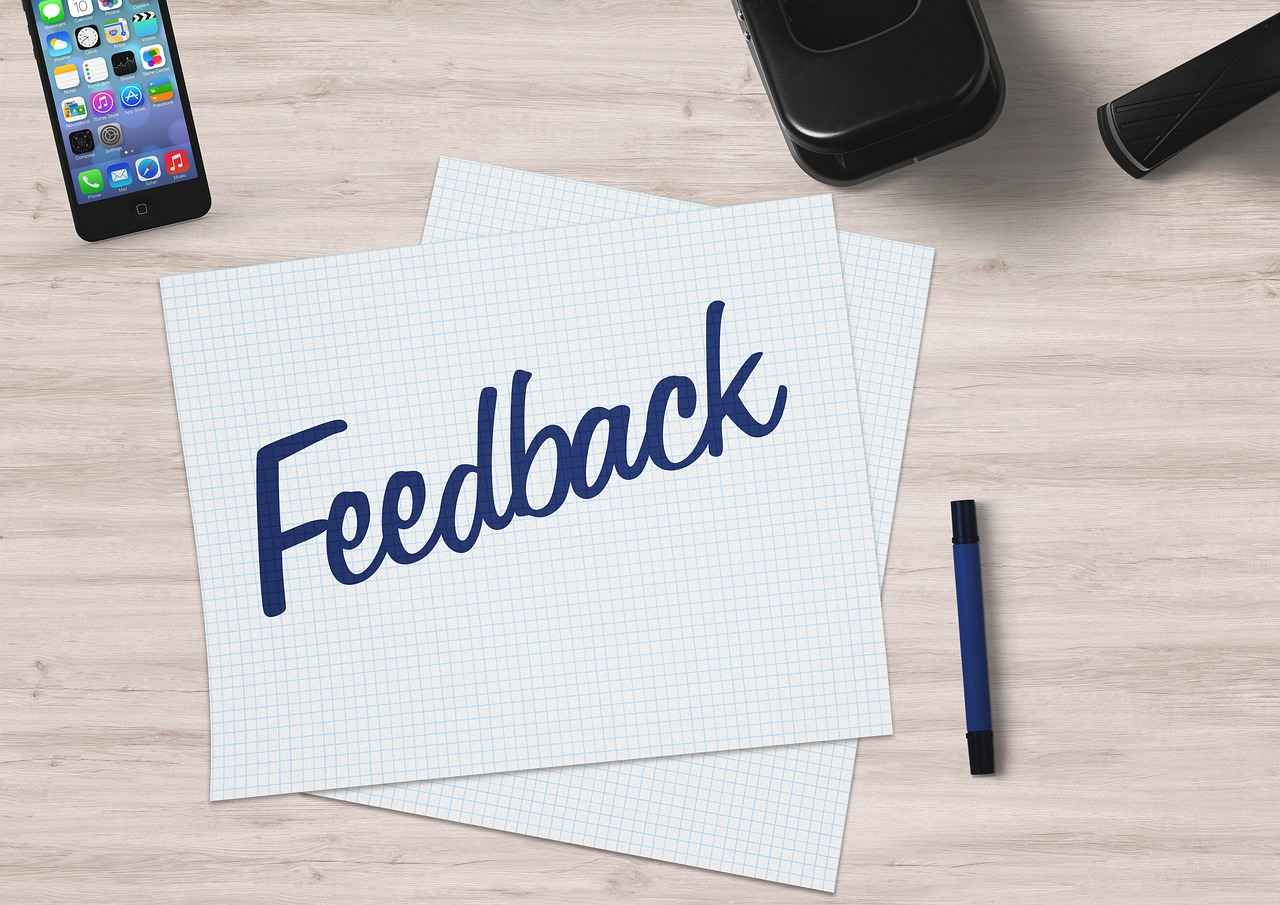
Divorce and Family Law: Choosing the Right Lawyer
When facing divorce or family law issues such as custody disputes, the emotional turmoil can be overwhelming. It is crucial to find a lawyer who not only possesses the necessary legal expertise but also understands the sensitive nature of these cases. Here are some essential guidelines to help you select the right attorney for your family law matters.
- Specialization in Family Law: Look for attorneys who specialize in family law. This area of law encompasses a variety of issues, including divorce, child custody, child support, and spousal support (alimony). A specialized lawyer will have a deeper understanding of the nuances involved in these cases.
- Experience Matters: Seek out attorneys with a proven track record in handling family law cases. An experienced lawyer will be familiar with local laws and procedures, which can significantly influence the outcome of your case.
- Emotional Intelligence: Family law cases can be emotionally charged. Choose a lawyer who demonstrates empathy and understands the emotional aspects involved. This will help create a supportive environment during a challenging time.
- Referrals and Reviews: Ask friends, family, or colleagues for recommendations. Online reviews and testimonials can also provide valuable insights into the attorney’s reputation and effectiveness.
- Consultation: Many attorneys offer free initial consultations. Use this opportunity to assess their communication style, approach, and whether you feel comfortable discussing your situation with them.
- Cost Transparency: Discuss fees upfront. Understanding the billing structure—whether hourly rates or flat fees—will help you avoid unexpected expenses later on.
- Negotiation Skills: A significant part of family law involves negotiations, especially in custody and support arrangements. Ensure that your attorney is skilled in negotiation and has a strategy for your case.
- Litigation Experience: If your case does go to court, you want an attorney who is not only comfortable but also experienced in litigation. Ask about their courtroom experience and previous case outcomes.
In major metropolitan areas like New York City, Los Angeles, and Chicago, the competition among family law attorneys is fierce. Utilize online platforms such as Avvo or FindLaw to search for qualified lawyers in your area. These platforms provide ratings, reviews, and detailed profiles that can help you make an informed decision.
Remember to be wary of red flags, such as lawyers who make unrealistic promises, lack communication, or pressure you into making quick decisions. A trustworthy attorney will respect your pace and provide guidance tailored to your unique situation.
In conclusion, choosing the right lawyer for your divorce and family law matters requires careful consideration. By focusing on specialization, experience, emotional intelligence, and effective communication, you can find an attorney who will advocate for your best interests during this challenging time.
Frequently Asked Questions
- How do I choose the right lawyer for my case?
Choosing the right lawyer can feel like searching for a needle in a haystack! Start by identifying your legal needs, then look for attorneys who specialize in that area. Check their experience, reviews, and success rates to ensure you have a strong advocate on your side.
- What should I expect during my first meeting with a lawyer?
Your first meeting is like a first date—it’s all about getting to know each other! Expect to discuss your case in detail, ask questions about their experience, and understand their fee structure. It’s the perfect time to gauge if you feel comfortable with them.
- How much does hiring a lawyer typically cost?
The cost of hiring a lawyer can vary widely based on their experience and the complexity of your case. Some charge hourly rates, while others may work on a contingency basis. Always ask for a clear breakdown of fees upfront to avoid surprises later!
- What if I can’t afford a lawyer?
If money is tight, don’t worry! There are options available. Look for legal aid organizations or pro bono services that can help you without breaking the bank. Many attorneys also offer payment plans or free consultations to get you started.
- Can I represent myself in court?
Yes, you can represent yourself, but it’s like trying to fix your car without any tools—risky! While self-representation is allowed, it’s often advisable to have a lawyer who knows the ins and outs of the legal system to improve your chances of success.














